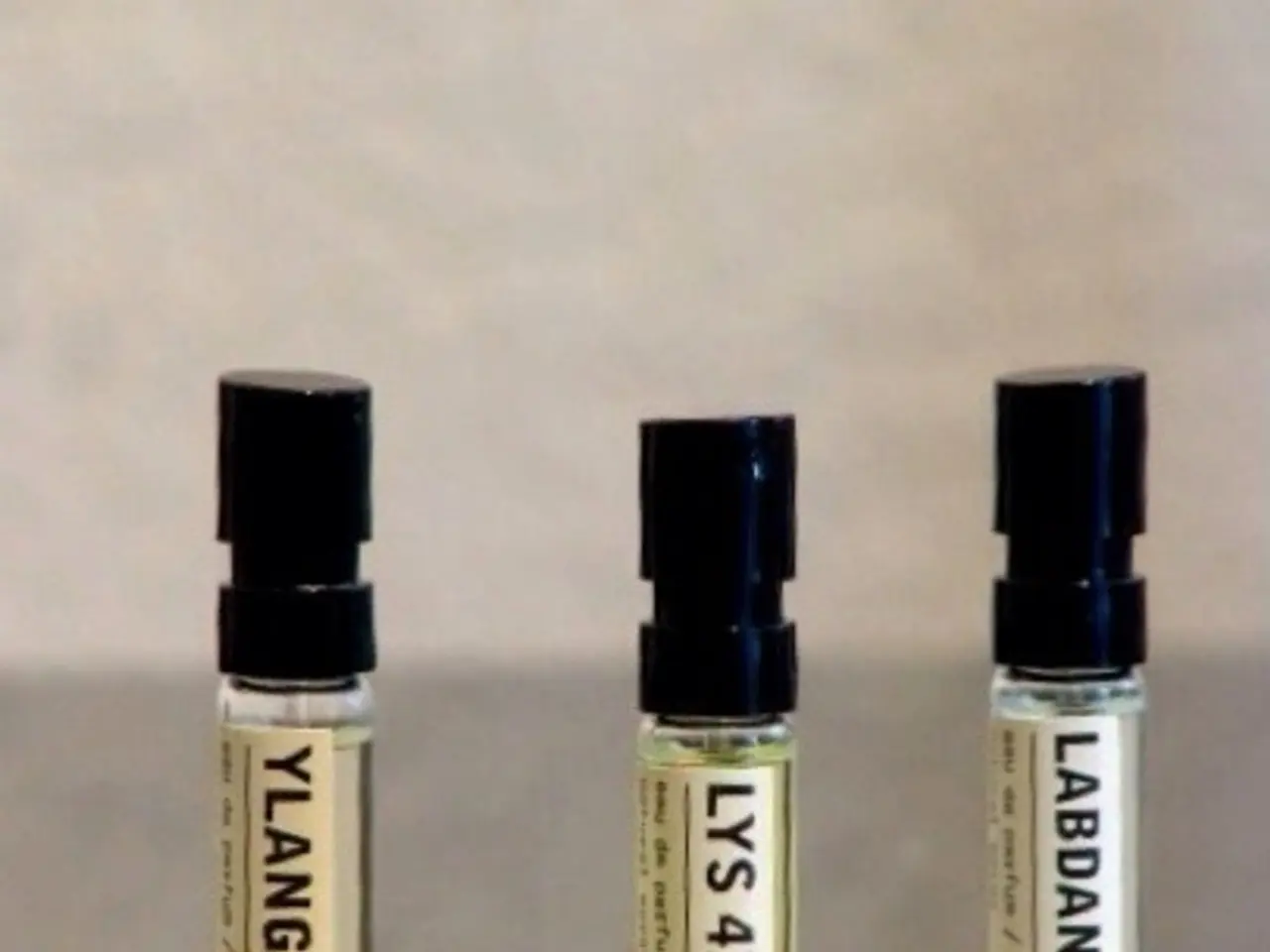Differentiating between Essential Oils and Fragrance Oils: Understanding the Distinctions
In the realm of aromatic compounds, essential oils and fragrance oils are two distinct entities with unique properties, uses, and efficacy.
Essential oils, the concentrated plant extracts, capture the natural scent and properties of plants such as lavender and eucalyptus. Obtained through distillation or cold pressing, these oils contain numerous natural compounds, making them complex and dynamic [1][4]. On the other hand, fragrance oils are either fully synthetic or a blend of natural and synthetic components, designed to produce specific, consistent scents and are often used in candles, soaps, and scented products [1][3].
When it comes to uses, essential oils are commonly employed in aromatherapy, skincare, perfumery, and as natural fragrances in diffusers or candles. They can have therapeutic benefits due to their natural properties [1][3]. Fragrance oils, however, are primarily used for scented products like candles, soaps, and laundry. They are also used in perfumery for their ability to create stable, long-lasting fragrances [3].
The efficacy of both oils varies. Essential oils' efficacy depends on the specific oil and its concentration. Some essential oils have therapeutic properties, but they can be volatile and may not last long without proper dilution [1][3]. Fragrance oils, on the other hand, are designed to be more stable and consistent in their scent, often used because they can provide a longer-lasting fragrance compared to essential oils [3].
In terms of lifespan, essential oils are natural and volatile, meaning they can evaporate quickly. Their scent can fade faster compared to fragrance oils, although some natural perfumes can last longer when properly formulated [2][4]. Fragrance oils, due to their synthetic formulation, which includes fixatives to extend their scent duration, typically last longer [3][4].
In conclusion, while essential oils offer natural, complex scents with potential therapeutic benefits, fragrance oils provide longer-lasting, consistent fragrances often used in commercial products. When using products containing fragrance oils externally on the body, it's essential to opt for those made of natural and organic ingredients for safety. Both essential oils and fragrance oils can be found in various consumer product markets, with essential oils being the parent ones from which numerous other varieties originate.
In the world of consumer product markets, essential oils and fragrance oils each have distinct roles in lifestyle and decor. Essential oils, derived from plants, are used in aromatherapy, skincare, and as natural fragrances in home diffusers, capturing the essence of nature with their complex and dynamic compounds. Fragrance oils, on the other hand, are primarily found in fashion-and-beauty products like perfumes and candles, offering longer-lasting, consistent scents through a blend of natural and synthetic components. Additionally, the food-and-drink sector, especially in home-and-garden items, may incorporate fragrance oils for their long-lasting aroma. Shoppers can explore various products containing these oils, with essential oils being the parent ones from which many other products are derived.




